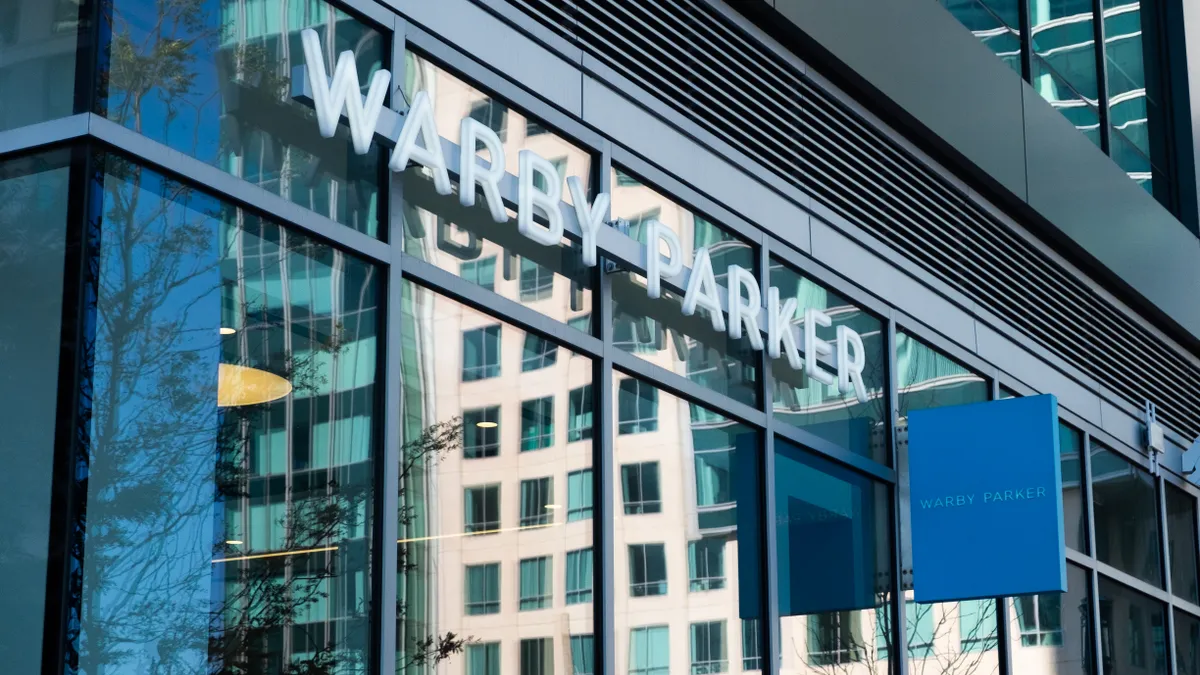Dive Brief:
-
After months of rumors, eyewear brand Warby Parker on Tuesday announced it has confidentially filed a draft document with the Securities and Exchange Commission related to a proposed public listing.
-
The DTC company said the public listing is set to take place after the SEC finishes its review of the S-1 filing and upon other closing conditions, according to a press release.
-
Warby Parker did not specify whether it will pursue an initial public offering or a direct listing method.
Dive Insight:
Warby Parker, a so-called "darling" in the direct-to-consumer space, was among the first class of DTC brands to enter the scene.
Some credit the brand, which launched in 2010, as changing the way people order prescription lenses. Since its inception, Warby Parker has raised more than $500 million and as of last month, was valued at $3 billion, according to PitchBook.
And as the limitations of selling goods exclusively online became ever more apparent, especially the marketing costs associated with customer acquisition, Warby Parker — like many other DTC brands lately — took its offering offline. The digitally native brand has partnered with traditional retailers, like Nordstrom, and operates more than 140 of its own stores across the United States and Canada.
As DTC brands reach a certain size, they begin eyeing their next move. Some brands have inked deals to be acquired by larger companies, like in the case of Dollar Shave Club, which was acquired by Unilever for $1 billion. However, as exemplified by razor brands Billie and Harry's, which were to be acquired by Procter & Gamble and Schick maker Edgewell, respectively, such deals have been complicated by scrutiny from the Federal Trade Commission.
Other brands, like Casper, Chewy and now Warby Parker, have taken the next step by listing publicly on the stock market through an IPO or direct listing, which has oftentimes revealed the difficulties e-commerce brands face in achieving profitability.
More recently, other DTCs have gone public by way of special purpose acquisition companies, or SPACs. The method has gained popularity with the number of deals across industries reaching 248 in 2020, up from just 59 a year earlier, according to SPACInsider. However, such deals have faced a slowdown in recent months after their rapid rise as the SEC takes a harder look at the method.














